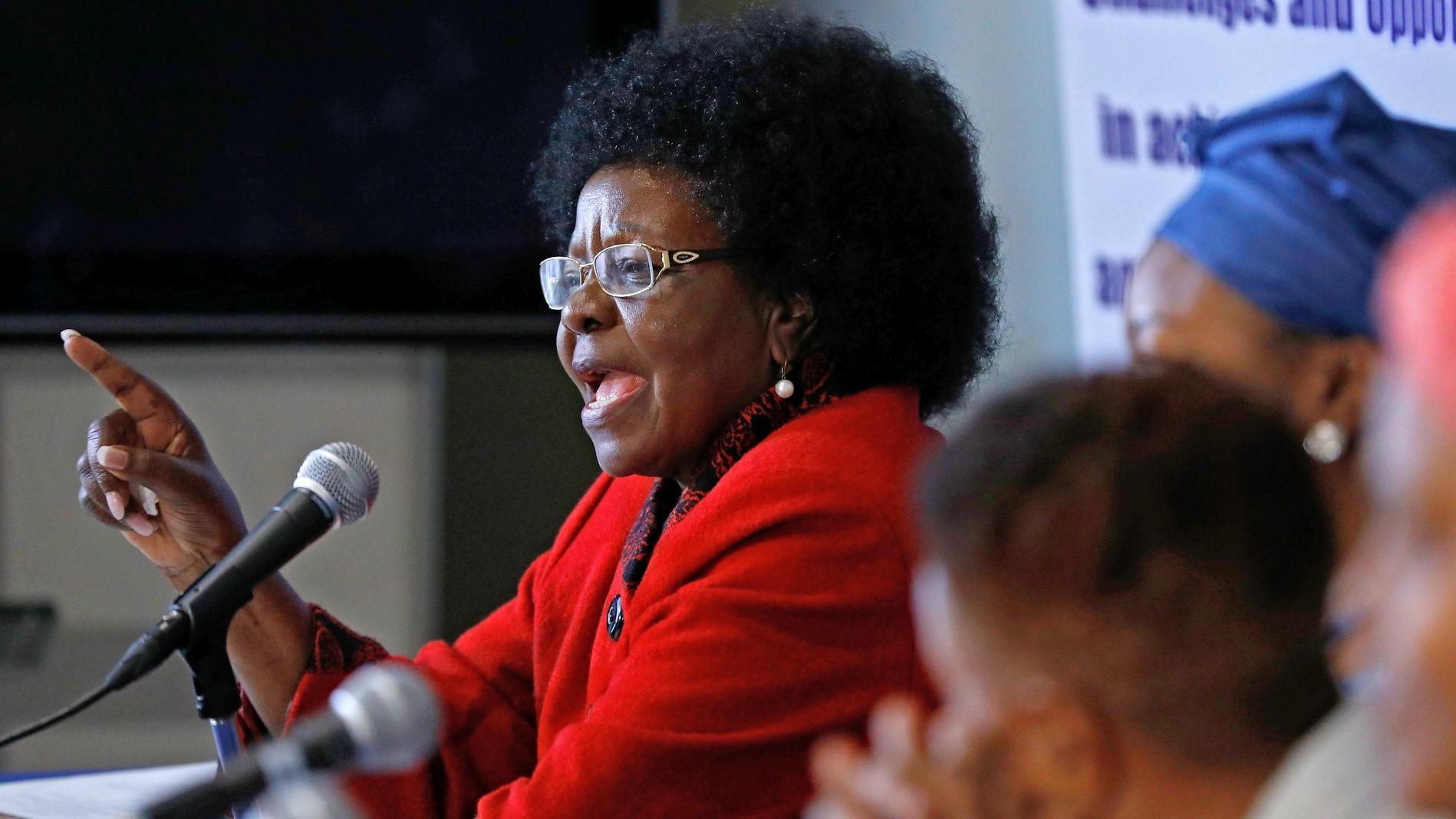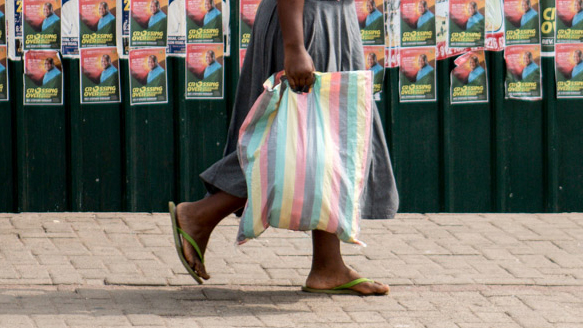Demand for sexual gratification by persons in authority in exchange for access to resources and opportunities is not new globally. However, anti-corruption efforts have rarely focused on these sorts of crimes as corruption is largely seen from the financial crime lens. Dr Uche Igwe argues that there is a need to incorporate sexual extortion as a form of bribery. He insists that the subject deserves adequate attention from anti-corruption scholars and practitioners as a harmful form of corruption that ought to be reported and punished.
Sometime in 2012, while on a road trip to Lagos, a young man narrated a touching story of how his mother, a peasant farmer and petty trader, was almost raped by his uncle. The young man was a student of the University of Ibadan and had returned home for a mid-semester break. At the break’s expiration, he needed money for transport and upkeep, and his mother had to approach his uncle for a loan. The uncle invited the boy’s mother to his house one evening when most villagers had gone to the market. During the visit, the uncle attempted to force her into sex if he was to give her the loan. The boy’s mother did not accept the amorous request, and the loan offer was immediately declined.
Juliet is a new employee in a big multinational firm, posted to the office of the Chief Executive Officer (CEO) as an assistant. She dreams of travelling abroad, but according to company policy, she is only entitled to travel abroad when she gets promoted to senior officer- in ten years. Her boss, however, the organisation’s CEO, noticed her and decided to include her name for a conference in Paris. She was very excited about the opportunity. On arrival in Paris, he invited her to his hotel room and made sexual advances. She was initially reluctant but could not refuse, probably as her way of ensuring that her name is included for future foreign trips.
Those who perpetrate sexual exploitation abuse their positions of authority
During the 2015 elections, Halima considered herself popular among the grassroots and wanted to represent her constituency in the Nigerian parliament. She approached one of the political parties to seek the nomination. The Chairman of the Party became interested in her and promised to help her secure the nomination. He invited her to a three-day meeting in Abuja, Nigeria’s capital city. On the second day, the party’s Chairman asked her to come to his hotel and coerced her to spend the night with him. After they had sex several times, the Chairman confirmed that her name would be put forward as the candidate. Two weeks later, Halima’s name was not on the published list. When she tried to reach the Chairman, he did not pick up her calls. For fear of stigmatisation, she could not report the matter to anyone as the scandal will hurt her reputation and marriage.
Women are more vulnerable to it, but men are not exempt either
Juliet and Halima are victims of abuse of authority. Such stories are familiar in Nigeria and many African countries like Tanzania, Zimbabwe and South Africa. Sextortion may be a relatively new term, but extortion as a crime is pretty common and takes different forms. Perpetrators usually have one form of authority and exercise it for their gain. Yet it is not limited to region or industry. Those faced with poverty and other power factors are most vulnerable to sextortion.
Culturally ingrained power asymmetries between men and women produce and reinforce gender roles that make women more exposed to common abuses of power in the form of sexual exploitation. Anytime a woman is confronted with demands for sex, her welfare and opportunities hang in the balance. If she refuses, she risks being denied the means to achieve her aspiration. If she accedes, whatever benefits she receives come at a huge cost.
Sextortion is not new, but it is mainly underreported and unpunished
Demand for sexual gratification in exchange for access to essential resources and opportunities is both an infringement on human rights and an obstacle to achieving sustainable development goals in gender equality and transparent, sustainable governance. Efforts to designate sexual exploitation as a form of corruption are not new, but anti-corruption efforts have rarely focused on sexual bribes. Globally, corruption is narrowly associated with abuse of power for financial gain. Around 2008, the International Association of Women Judges coined sextortion to describe a form of corruption in which sex is the currency.
The nature of sextortion tends to mask it, making it difficult to ask the right questions to understand the offence properly. This often leads to poor handling of the complaints and failure to achieve justice.
International agencies are not immune from the scourge
With the unemployment rate rising to 33.3 per cent in Nigeria and 33.9 per cent in South Africa, people are getting more desperate in search of jobs. In many cases, women are asked to provide sexual favours as a condition for receiving employment and often do not get it after granting such requests. In cases where they receive employment after sexual acts, they are forced to continue providing sexual favours regularly to keep their jobs. This was the case in the Democratic Republic of Congo (DRC) among the staff of the World Health Organization who were recruiting locals for the Ebola crisis response. About 80 cases of sexual abuse and exploitation were uncovered, implicating at least 20 members of the organisation.
Attention is increasing to how the problem of sextortion hurts ordinary people. The scale of the problem is not getting any more minor, yet scholarly insights into this challenge remain conceptually and empirically underdeveloped. Systematic studies are scant, and there is little knowledge about the phenomenon’s scope. This might be because many people harmed by sextortion do not report it for fear of prevailing cultural taboos and social stigma.
Those who see corruption only from the financial crime lens must rethink
Justice systems and legal framers are poorly equipped for prosecuting sextortion. Many anti-corruption frameworks do not explicitly criminalise coerced sexual acts as forms of bribery, abuse of authority or wrongdoing. Transparency International’s recent report acknowledges challenges in prosecuting sextortion under existing anti-corruption and gender-based violence legal frameworks. However, the Nigerian Independent Corrupt Practices and other Miscellaneous Offences Commission(ICPC) has employed innovative approaches that have led to the successful prosecution and conviction of several perpetrators of sexual extortion. Although the punishment so far meted on them remain a slap on the wrist, such efforts must be commended. Sextortion in Nigerian universities remain rampant and not limited to females alone.
A clear legal framework for combating sextortion is needed, and victims must be encouraged to speak out
The Nigerian National Assembly introduced a bill in 2016 to criminalise sextortion in Nigerian Universities and punish with a jail term of five years. Still, lecturers insist that such legislation could violate university autonomy. The bill was re-introduced in 2019 and passed by the Senate in 2020 but has not yet been signed into law. Although sex-for-marks is a crucial area, more far-reaching legislation is necessary to ensure every sexual predator, wherever they are, from workplaces to worship centres, is found and made to face the wrath of the law. Recognising sextortion as a form of corruption is an essential first step toward treating this abuse of power with the seriousness it deserves. Adequate and holistic strategies must be urgently developed to combat it. It is an essential pathway toward incorporating contextual flavour into the global corruption debate. Awareness raising must continue through effective reporting, and robust data collection must be knitted together to inform strategy. To bring sextortion higher on the policy agenda, victims and survivors must cooperate by breaking through cultural inhibitions and speaking out.
Photo by Oluyomi Akinnagbe: https://www.pexels.com/photo/6837602/






This was a worthwhile read.
Thank you.
This is a rather intriguing read.
This is an interesting and necessary extension of the ambit of public corruption. Well done, Dr Igwe.